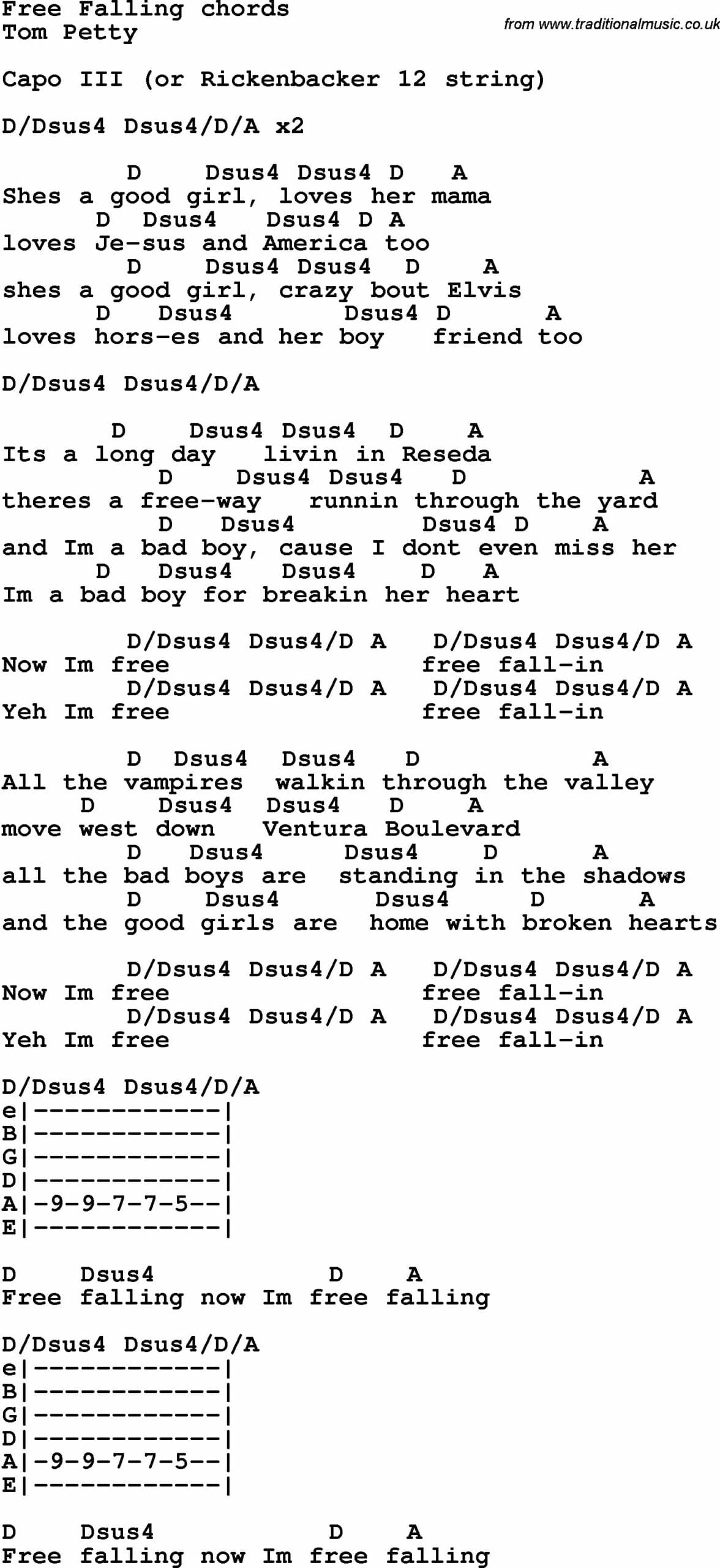When Tom Petty’s raspy voice croons “Free Fallin’,” he’s not just singing about heartbreak; he’s painting a poignant picture of longing and disillusionment against the backdrop of a fading California dream. Released in 1989, the song transcends a simple breakup anthem, taking listeners on a lyrical journey through the heart of 1980s Los Angeles, where sunshine and shadows collide.
Cruising Down Ventura Boulevard: The Song’s Setting and Characters
“Free Fallin'” isn’t about some vague, idealized California; it’s rooted in the reality of specific locations that anyone familiar with the Los Angeles landscape would recognize. Petty name-drops Reseda, a working-class suburb that speaks to the ordinariness many people experience, even in the supposed land of opportunity. Then there’s Ventura Boulevard, that iconic stretch of road known for its nightlife, representing both the allure of escape and the potential for darker experiences. And high above it all, winding through the Hollywood Hills, is Mulholland Drive, offering panoramic views and a sense of detachment from the city below.
The characters who inhabit this world are archetypes caught in a familiar struggle. There’s the “good girl,” probably blonde and sun-kissed, representing traditional values and a longing for stability. On the other side, you have the narrator, the self-proclaimed “bad boy” who’s chosen a life less ordinary, embracing freedom even if it comes with a cost. This clash between settling down and breaking free, between the allure of a stable life and the yearning for something more, lies at the heart of the song’s emotional landscape.
Beyond Heartbreak: Decoding the Lyrics of “Free Fallin'”
The phrase “free fallin'” itself functions on multiple levels, adding layers of meaning to the song. On a literal level, it evokes the sensation of gliding over Mulholland Drive, the city lights sprawling beneath. But it also speaks to the emotional freefall that often accompanies heartbreak – that feeling of being untethered, adrift, uncertain of where to land.
And then there’s a third layer, perhaps a subtle commentary on the societal pressures of the time. In the context of 1980s Los Angeles, known for its emphasis on success and appearances, “free fallin'” could also suggest a sense of detachment from societal expectations.
Petty doesn’t shy away from hinting at a darker side to this California dream. He sings about “vampires” and “shadows,” images that evoke a sense of danger and disillusionment lurking beneath the surface of paradise. The lyric “all the good girls are gone bad” suggests a widespread feeling of restlessness, a yearning for something more than the prescribed roles society offers, particularly for young women.
“She’s a Good Girl, Crazy ‘Bout Elvis”: The Enduring Appeal
The genius of “Free Fallin'” lies in its ability to be both heartbreaking and uplifting. The melody is undeniably catchy – it makes you want to roll down the windows and sing along, even as the lyrics hit you with a sense of bittersweet longing.
Decades after its release, “Free Fallin'” remains a cultural touchstone. It’s a song that acknowledges the pain of heartbreak, the allure of escape, and the sometimes painful, sometimes exhilarating feeling of being adrift in a world that often feels like it’s spinning too fast.
FAQs About “Free Fallin'”
What inspired Tom Petty to write “Free Fallin'”?
While the exact inspiration for “Free Fallin'” remains somewhat shrouded in rock and roll lore, it’s widely believed that the song’s genesis can be traced back to a simple phrase. According to accounts from those who were there, Tom Petty and his frequent collaborator, Jeff Lynne, were jamming in the studio when the words “free fallin'” tumbled out. That evocative phrase, with its inherent sense of both liberation and uncertainty, sparked a creative fire, eventually evolving into the iconic song we know and love today.
What is the deeper meaning behind the lyrics?
The beauty of “Free Fallin'” lies in its ability to resonate on multiple levels. While the surface narrative focuses on a relationship’s end and the narrator’s emotional response, the song delves into broader themes of disillusionment, the complexities of freedom, and the ever-present tension between chasing dreams and confronting reality. Some interpretations suggest that the song serves as a subtle critique of the California dream itself, exposing the darkness and discontent that can lurk beneath a veneer of sunshine and success.
Did “Free Fallin'” ever reach number one on the charts?
It might come as a surprise to some, but despite its enduring popularity and status as an anthem for the heartbroken and hopeful alike, “Free Fallin'” never actually reached the pinnacle of the Billboard Hot 100 charts. The song peaked at number seven in 1990, a testament to its widespread appeal but also a reminder that chart success doesn’t always perfectly align with cultural impact. Tom Petty himself, with his signature raspy voice and knack for capturing the essence of everyday struggles, never had a number one hit, a fact that speaks more to the nuances of chart performance than to his undeniable influence on music.
- Unveiling Bernhard Caesar Einstein’s Scientific Achievements: A Legacy in Engineering - July 15, 2025
- Uncover who is Jerry McSorley: CEO, Family Man, Business Success Story - July 15, 2025
- Discover Bernhard Caesar Einstein’s Scientific Contributions: Unveiling a Legacy Beyond Einstein - July 15, 2025















